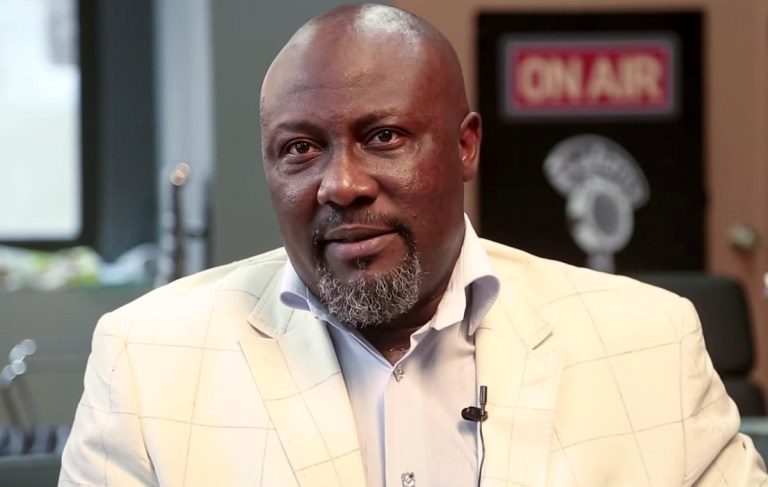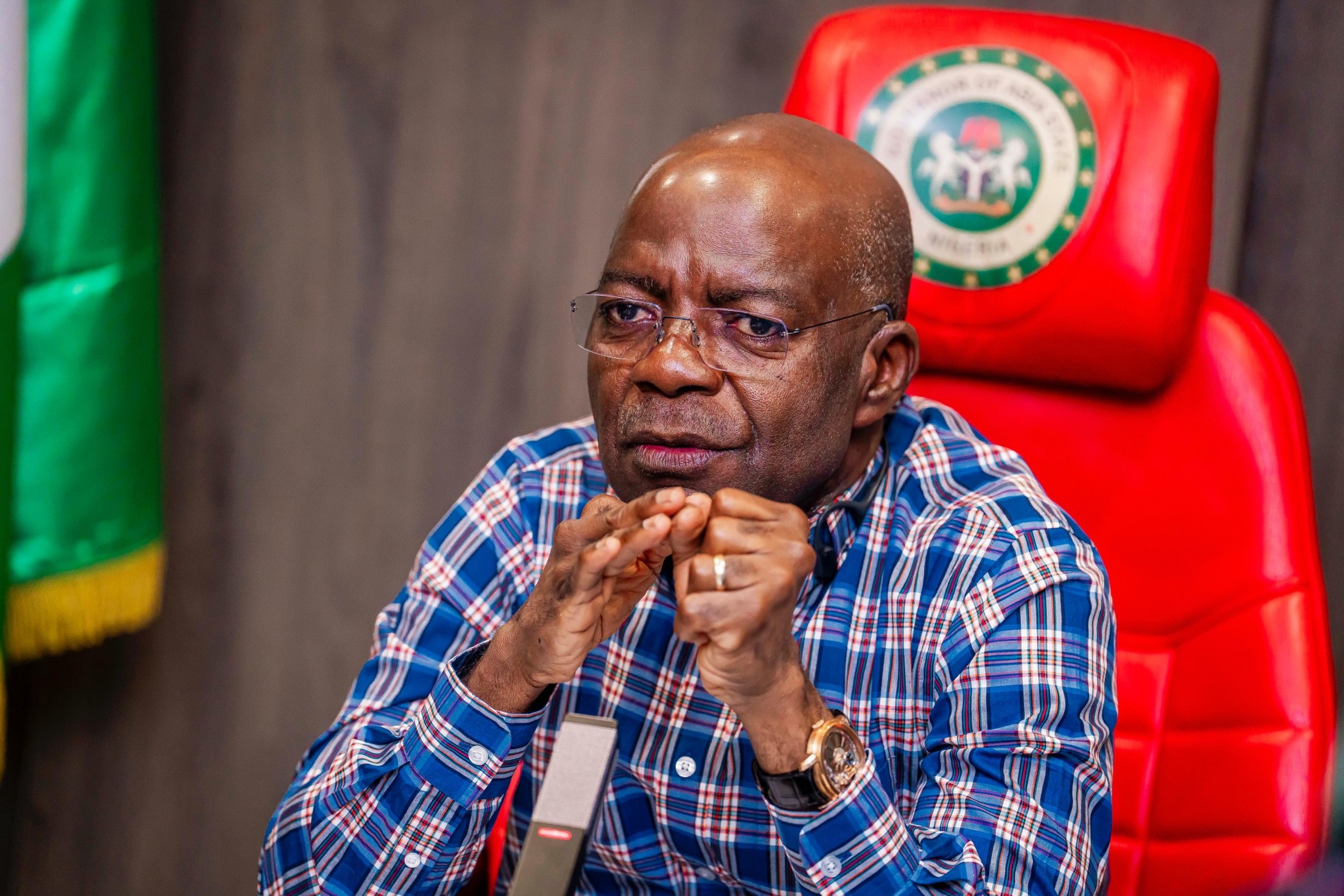•Economy grew by 3.13% in Q1 2025, oil contributed 3.97%, non-oil 96.03%
•Oil production increased to 1.62mbpd
James Emejoin Abuja
National Bureau of Statistics (NBS) yesterday released the much-awaited rebased Gross Domestic Product (GDP) estimates, pegging nominal GDP at N372.82 trillion (about $243 billion) as at 2024, reflecting a year-on-year increase of 18.30 per cent in nominal terms.
Nigeria is now Africa’s fourth largest economy after South Africa, $410.34 billion, Egypt $347.34 billion, and Algeria $268.89 billion.
NBS also disclosed that the economy grew by 3.13 per cent in the first quarter of the year (Q1 2025).
Addressing journalists at the public release of the results of the rebasing exercise in Abuja, Statistician General of the Federation (SGF)/Chief Executive, NBS, Prince AdeyemiAdeniran, said the outcomes reflected changes in economic reality.
Adeniran cautioned against politicising the new figures.
Essentially, the exercise changed the base year used for calculating economic activities to 2019 from 2010.
As a result, post-rebasing, GDP at market prices increased by 41.7 per cent to N205.09 per cent in 2019, from N54.2 trillion (prior to rebasing), and rose to N213.64 trillion in 2020; N243.30 trillion in 2021; N247.23 trillion in 2022; N314.02 trillion in 2023; and N372.82 trillion in 2024.
In real terms, GDP grew -6.96 per cent in 2020 (COVID-19 year); 0.95 per cent in 2021; 4.32 per cent in 2022; 3.04 per cent in 2023; and 3.38 per cent in 2024, Adeniran stated.
According to the results, the informal sector contributed N86.85 trillion or 42.5 per cent to overall economy.
Adeniran said the economy was dominated by the services sector, which accounted for 53.09.per cent post-rebasing, compared to 52.60 per cent prior to the exercise.
However, it is unclear if the new GDP numbers reaffirmed Nigeria as Africa’s leading economy, as NBS does not rank countries.
Following the rebasing of GDP using 2019 as the base year, the economy grew by 3.13 per cent year-on-year in real terms in Q1, compared to 2.27 per cent in Q1 2024.
According to GDP estimates for Q1, 2025, aggregate GDP at basic price stood at N94.05 trillion in nominal terms, compared to N79.51 trillion in Q1 2024, representing a nominal growth of 18.30 per cent. Real GDP stood at N49.34 trillion.
In the quarter under review, the economy was driven mainly by the services sector, which recorded a growth of 4.33 per cent and contributed 57.50 per cent to the aggregate GDP.
The non-oil sector grew by 3.19 per cent in real terms, and contributed 96.03 per cent to GDP in Q1, compared to 97.20 per cent in the preceding quarter and 95.98 per cent in Q1 2024.
On the other hand, the oil sector’s contribution to real GDP rose to 3.97 per cent in Q1 from 2.80 per cent in Q4 2024, but lower than 4.02 per cent in Q1 2024.
The country’s average daily oil production increased to 1.62 million barrels per day (mbpd), compared to 1.54 mbpd in the preceding quarter, and 1.57 mbpd recorded in same quarter of 2024.
NBS said the real growth of the oil sector stood at 1.87 per cent year-on-year in Q1, compared to 4.71 per cent in the corresponding quarter of 2024.
Agriculture recorded modest growth of 0.07 per cent in Q1 2025, improving from a 1.79 per cent contraction in Q1 2024.
The sector contributed 23.33 per cent to aggregate GDP in real terms in Q1, lower than 28.68 per cent in the preceding quarter and 24.04 per cent in Q1 2024.
Manufacturing’s contribution to real GDP stood at 9.62 per cent in Q1, compared to 7.62 per cent in 2024 and 9.76 per cent in Q1 2024.
Overall, the results of the rebasing from 2019 to 2024 and estimates for Q1 2025, reflected the evolving economic structure.
The contribution of crop production stood at 17.58 per cent, ranked highest, followed by trade 17.42 per cent, real estate 10.78 per cent, overtaking crude oil (5.85 per cent).
Services led broad sector classification at 53.09 per cent, followed by agriculture 25.83 per cent.
Adeniran stressed that the rebasing of the economy was largely necessitated by economic dynamics, which changed continually with innovation and new technologies that altered the production and consumption patterns of individuals, households, firms, and government.
He said given those changes, it was only right that the parameters used to estimate the size, structure, and movements in the economy were updated periodically, to ensure an accurate and realistic picture of the economy.
Adeniran stated, “This is why statistical offices worldwide undertake the process of rebasing. This is not a Nigerian affair; it is a global practice, conventionally done every five years, of course, depending on resource availability and the technical capacity of the statistical office.
“It is also essential to state that the conduct of this exercise is not instituted or directed by the government to fulfil any set target or objectives.
“This is merely a routine activity, as I mentioned earlier, one that NBS undertakes in fulfilment of our mandate and as a responsible producer and manager of official statistics in Nigeria.”
He said, “The process of conducting this rebasing exercise, just like any other, requires a massive amount of granular data, and I am proud to say that this one is by far the most comprehensive of any rebasing exercise conducted by the bureau.
“For those who can recall, when presenting the results of the 2014 rebasing exercise, with a base year of 2010, the bureau mentioned that two major activities were missing: the Business Sample Census and the Agriculture Sample Census.
“Under this round, however, not only have both censuses been conducted, but other notable data collection activities have also been carried out. This includes the Nigerian Living Standards Survey, which provided data on Households operating non-farming enterprises.
“Other data collection activities include the National Agricultural Sample Survey, the Annual Business Establishment Survey, the Revised Nigerian Labour Force Survey, and a range of administratively sourced data from Ministries, Departments, and Agencies of the government.”
He said the rebasing exercise, not only involved the change in the base year, from 2010 to 2019, but also included methodological updates based on best practice and official statistical guidelines.
Adeniran said, “It is only by undertaking this rigorous process in our national accounts’ compilations that NBS, as the authoritative source of official statistics in Nigeria, can confidently say that our numbers represent the best estimates of the actual size and structure of the Nigerian economy.”


